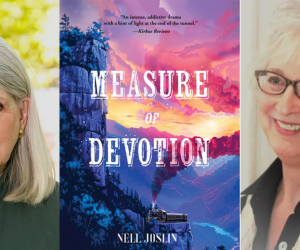
Gene R. Nichol, Lessons from North Carolina: Race, Religion, Tribe, and the Future of America
North Carolina had a big, unfortunate headstart on now-common attacks on democratic institutions—the lessons learned as NC makes its way out of the chaos can benefit other states.
Attacks from the radical right will plague the entire nation for the foreseeable future, and now is the time to seek out the causes and find the path to remedy them. In his most personal book yet, Indecent Assembly author Gene Nichol takes on, unsurprisingly, race, religion, poverty, higher education, constitutionalism, movement politics, the meaning of North Carolina proper. He forecasts the future of democratic promise in the state, the South, and the United States.
This book is not reportage, but rather a cri de coeur, with inspiration and aspiration for the next generation.
“Nobody speaks truth to power like Gene Nichol. Nobody. The potency of his words can be measured by the lengths to which the North Carolina GOP has gone to shut him up. Nichol raised the General Assembly’s wrath enough for partisans to seek (ultimately unsuccessfully) to cut $3 million from the UNC Law School’s budget, a proposal informally called the ‘Gene Nichol Transfer Amendment.’ And then there was the investigation that the right-wing powers governing UNC conducted of every center in the university system just to close his poverty center. But Nichol just keeps truth-telling. Here, he presents another searing critique of the political powers that be in North Carolina and the unconscionable path on which they have taken the Tar Heel state. His powerful account provides critical lessons about the road we must travel to recommit both the state and the country to the best of American ideals.” —Maxine Eichner, The Free-Market Family: How the Market Crushed the American Dream (and How It Can Be Restored)
Gene R. Nichol is a law professor, commentator, and author of Indecent Assembly: The NC Legislature’s Blueprint for the War on Democracy and Equality (Blair) and The Faces of Poverty in North Carolina: Stories from Our Invisible Citizens. He was director of the UNC Poverty Center until it was closed by the UNC Board of Governors for publishing articles critical of the then governor and General Assembly. Since 2015, his research has been supported by the North Carolina Poverty Research Fund.







Sorry, the comment form is closed at this time.